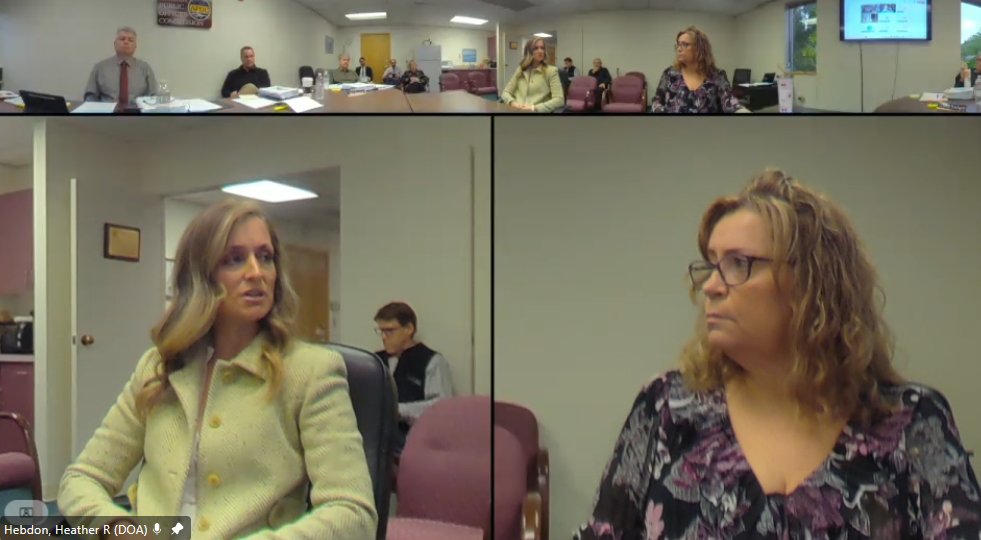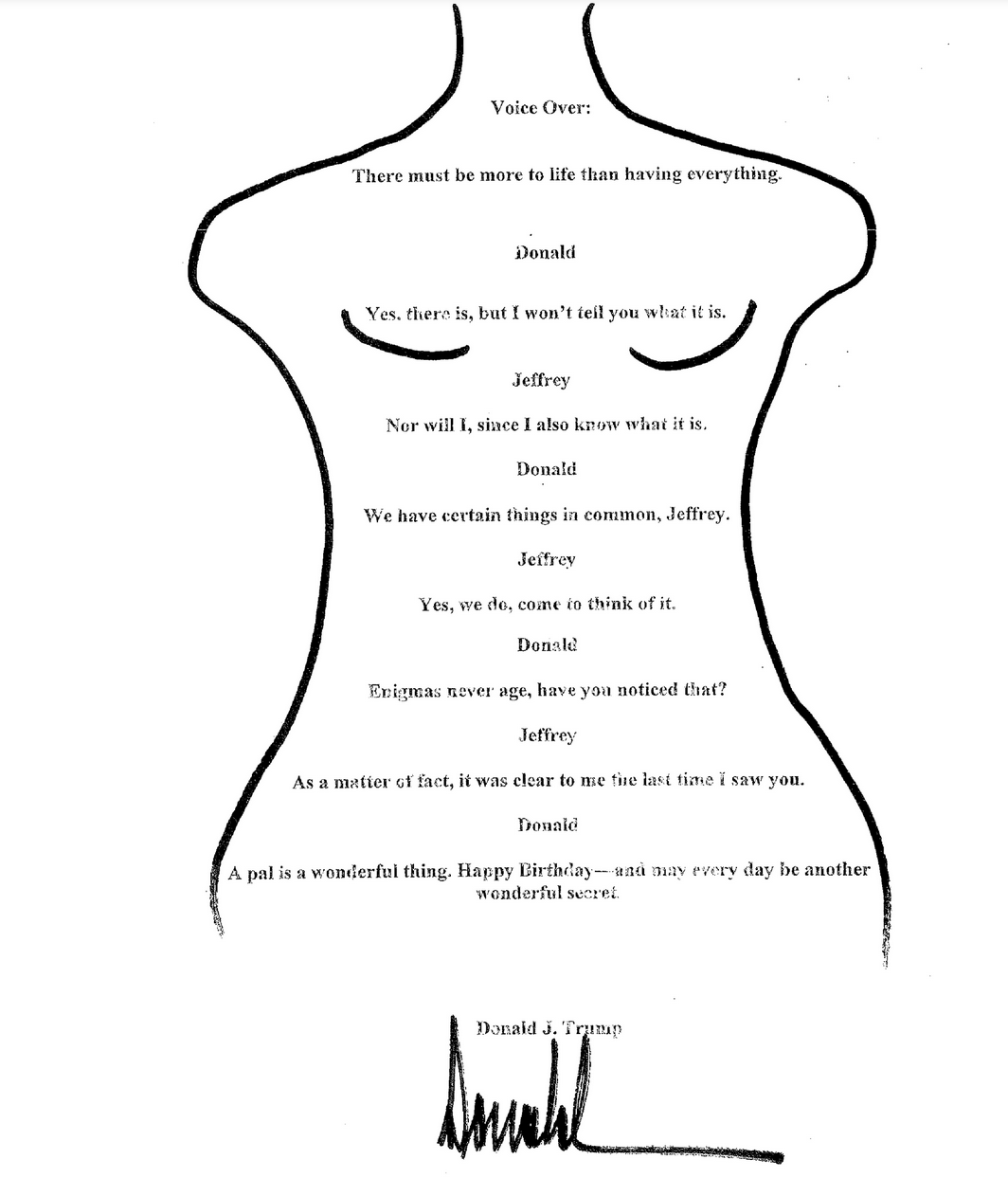The exemption that ended an era
A report detailing one Republican's efforts to conceal his business dealings ultimately pushed the outlet's business into the public eye.

It's Monday, Alaska.
In this edition: The longtime force behind Alaska's most influential right-wing outlet, Suzanne Downing, is out after a report that wasn't particularly flattering of the state's former Attorney General Treg Taylor, who's expected to be the third Dunleavy cabinet member to join the race for governor. Let's break down what we know about the exit, what's next in Alaska's conservative media landscape and Taylor's quest to conceal his business dealings that kicked the whole thing off.
Current mood: 🤔
The exemption that ended an era

One of the things that I'll invariably bring up when talking shop about Alaska's media landscape over a few beers is that for all of the vitriol and hyperventilating partisan outrage that she spread over the decade at the helm of Must Read Alaska, Suzanne Downing sometimes did good journalism. If she could only give up the rabid partisan bent and general mean-spiritedness, I'd say, glossing over the fact that the rabid partisan bent and general mean-spiritedness are the point, she could actually be a more important part of the state's media landscape. Of course, the partisanship is and has always been the point for a blog that started out as the de facto outlet for the Alaska Republican Party and delighted in wrapping GOP lawmakers around her finger, so I would never have expected the end of her time at the outlet she founded before selling it in 2023 would be over one of those rare acts of (mostly) down-the-middle-over-the-plate journalism.
The story in question was her report on former Alaska Attorney General Treg Taylor – the lone Dunleavy AG who didn't resign amid allegations of being a sex pest – as he seeks to conceal his business dealings ahead of a presumed run for governor (which would make him the third member of Dunleavy's cabinet to join the race to replace him). At issue are the identities of the 200+ tenants who pay rent to Taylor and his wife, Jodi, that would ordinarily be disclosed under the state's financial disclosure laws. But, as he frequently and conveniently found throughout his time as Dunleavy's AG, Taylor argued for a novel reading that conveniently fits his political needs, allowing him to keep them secret.
The public officer public disclosure report process is intended to give the public a view of the financial dealings of its state officers. Things like business dealings, loans and tenants are all things that help paint that picture, illustrating potential conflicts of interest that could color their decision-making in office.
Downing's story outlined Taylor's request to the Alaska Public Offices Commission and the staff report that recommended against granting the exemption because, in their words, it "places a burden upon the citizens who use these disclosures to ensure transparency." And she closed with a line noting that the request "may draw scrutiny as he positions himself for a run for governor. Personal financial disclosures have discouraged many business people from running for office, and so some may ask why Taylor, as the attorney general, should get an exemption from his public official financial disclosure."
For the record, the story about the exemption wasn't the first time Downing took a skeptical look at Taylor and his time as AG – which included a post detailing how it sure looked like he was using state office to boost his profile ahead of the run – but it was apparently the one that got her crosswise with the outlet's ownership, who she says ordered the post taken down.
"I resigned because the word came down from him," she said in a phone interview with the Juneau Independent about her interaction with owner and Republican party official Jon Faulkner. "He wanted that story down, and he was very insistent about it, and that's just not going to work for me."
Faulkner and the owners deny the claim, insisting that they were trying to combat the "political favoritism" that was creeping into the outlet's coverage, which is rich.
What's next for Must Read Alaska or Downing isn't clear at this point, but it looks like she's planning her own thing independent from the outlet she created. As writer Dermot Cole has documented on Bluesky through a series of her posts trying to invent a connection between the Charlie Kirk assassination and liberals, she's still going to be doing what she does best.
Rep. Andrew Gray, D-Anchorage, summed up what her exit from Must Read Alaska means in the broader political landscape in his interview with the Anchorage Daily News.
"I think not having her political influence in our government would be a great thing, but at this particular juncture in time, I don't think we can say what's going to happen," Gray said.
More on Downing's exit: Juneau Independent, Alaska Landmine, ADN, Northern Journal
About Taylor's exemption request

Taylor, who just a month before the Downing fallout had penned an op-ed for Must Read Alaska that "The rule of law doesn't work unless it applies to all of us," is arguing that the rule of law for the state's financial disclosures shouldn't apply to him. He's asked the Alaska Public Offices Commission for an exemption from the state's public disclosure laws that would require him to reveal the identities of his more than 200 renters to the public. The issue was taken up at last week's APOC hearing, which Treg Taylor didn't attend, and is still under consideration.
At the APOC hearing, Jodi Taylor insisted that bad actors like "trolls," the "media," and "political-minded people" would use the information to harass tenants to dig up dirt on the Taylors. She argued that the renters' right to privacy should override the state's political transparency laws.
"I felt like, in this case, people are trolling," Jodi Taylor said at the hearing. "It's been weaponized by the media, and others have already come to try to reach out to our tenants. … Someone found and threatened an employee with a gun."
(The disclosures only specifically require the names of tenants, not employees.)
Both APOC commissioners and the staff seemed skeptical of granting such a broad waiver, noting that the point of the disclosures is to allow the public to vet the business interests of its elected officials to determine potential conflicts. Other commissioners seemed to question whether the alleged harassment is just part and parcel of running for governor — opposition groups doing research to get dirt on candidates isn't anything new — and whether such alleged criminal acts are better handled through the police or troopers.
As for the letter of the state's disclosure laws, APOC Executive Director Heather Hebdon was clear that there was very little room in the law for them to grant such a sweeping exemption.
"There's no legal justification to exempt his rental income from electronic disclosure," said APOC Executive Director Heather Hebdon at the meeting. However, she noted that they were willing to make changes so it was logistically easier to file. "But with the argument that the tenants' right to privacy outweighs the compelling state interest in disclosure, I would say that the staff disagrees with that."
And not only would it violate the letter of the law, she said, but its intent.
"The purposes of public official financial disclosures in part are to assure that public officials and their official acts are free from the influence of undisclosued business interests and to allow the public to have access to the information necessary to judge the public officials' credentials or performance in office," she said.
Commissioner Dan LaSota mused on how the public could be expected to determine whether or not there is a potential conflict of interest if they didn't have access to the records. He got no clear answer.
At one point during the hearing, Jodi Taylor seemed to try to negotiate the difference, offering to provide just the first names in a public-facing list while offering APOC officials a complete list as long as APOC didn't disclose them publicly.
"Like I said, we would turn in the last names if it's just for APOC, but if there was a public record," she said before being cut off by Hebdon.
"This is what the statute tells you that needs to be disclosed," Hebdon said. "It's not for APOC's information; it's for the public information."
The commissioners ultimately took the issue into an executive session, with a written order due in the near future. It's likely that it — along with nearly everything related to campaign finance laws in Alaska — could ultimately be decided in the court system, either with the Taylors appealing a decision ordering them to disclose the information or another group suing to overturn a possible exemption.
It's also entirely possible that the Taylors could take the time-tested approach of Republican campaigning in Alaska by simply ignoring the law altogether and chalking up the fines as the cost of doing business.
More on the exemption: The Alaska Current (me), Alaska Beacon
Stay tuned.
Catching up on the news





The Alaska Memo Newsletter
Join the newsletter to receive the latest updates in your inbox.









